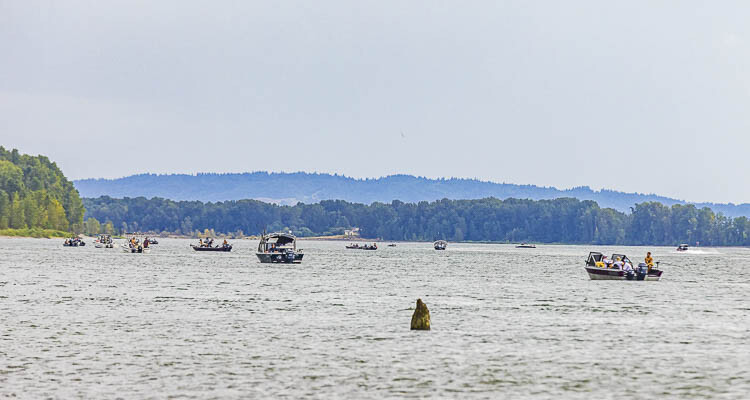
Todd Myers offers an assessment on the governor’s record on decisions and actions impacting salmon populations across Washington state
Todd Myers
Washington Policy Center

Over the last decade, salmon populations across Washington state have stagnated, making virtually no progress toward recovery. That news has not reached Governor Inslee’s spokesman Mike Faulk, who recently pointed to salmon recovery as an area of success.
Responding to questions about Governor Inslee’s record from KING 5 TV reporter Susannah Frame, the governor’s spokesman Mike Faulk offered several excuses. He complained that Frame’s “focus is on a small piece of the policy pie, not the governor’s whole strategy.” Instead, one of the things Faulk said people should look at is the governor’s record on “salmon restoration,” which he insinuated is going well.
This is completely inaccurate. Let’s look at the record.

Start with the assessment of the Governor’s Salmon Recovery Office (GSRO). The GSRO tracks progress on salmon recovery with the “State of Salmon in Watersheds” report. the executive summary from the 2022 report notes, “Salmon continue to struggle in Washington. No salmon species have been removed from the federal Endangered Species Act list in Washington and most of the species on the list are in crisis or not keeping pace with recovery goals.” This assessment is notably worse than in 2012 when the GSRO report noted, “In most areas of the state, fish are increasing or staying the same while in a few areas, fish are slightly decreasing.”
NOAA Fisheries, which monitors the status of threatened species, notes that over the past decade, most salmon populations in Puget Sound are getting worse. The most recent assessment, covering the 15-year period between 2004-19 found that “trends were negative” for 16 of the 22 Puget Sound salmon populations. NOAA scientists wrote, “there is a general decline in natural-origin spawner abundance across all [major population groups] in the most-recent fifteen years.”
The Puget Sound Partnership also missed its 2020 targets for recovering Chinook salmon. The goal to “start seeing improvements in wild Chinook abundance in 2-4 populations in each biogeographic region” was missed. The Partnership’s assessment found that, “Improvements, measured in terms of population abundance increases, were very small and the 25-75th CIs overlapped zero, suggesting no change in any populations’ abundance.” No change.
Salmon populations simply aren’t recovering in Washington state. Claiming that salmon restoration is a success is baseless and contrary to the data from the governor’s own agencies.
Earlier this year we identified four actions that will help get salmon recovery back on track in the state. But step one in every recovery process is “admit you have a problem.” Governor Inslee and his spokesman continue to be in denial about their failures and the price is being paid by salmon and the orca, tribes, and the sport and commercial fishers who rely on abundant salmon populations.
Todd Myers is the director of the Center for the Environment at the Washington Policy Center.
Also read:
- Opinion: In-n-Out Burger is so much more than fast food for so many of usPaul Valencia shares why In-n-Out Burger means more than just fast food for countless fans as Ridgefield nears its grand opening and Vancouver’s location begins construction.
- Opinion: Washington’s June 2025 budget revisions – revenue up spending up moreMark Harmsworth of the Washington Policy Center critiques the state’s latest budget revisions, warning that new taxes—not organic growth—are driving revenue. He calls for fiscal restraint and long-term reform.
- Opinion: Pedestrian control signalsDoug Dahl explains Washington state law regarding crosswalks and pedestrian signals, offering safety insights and common misunderstandings about traffic control at intersection
- Letter: ‘How can five part-time legislators without research support or reliable access to information serve as an effective check on six full-time elected executives’Bob Zak expresses agreement with recent opinions on the Clark County Charter’s imbalance and endorses John Ley’s transit preference while questioning light rail costs and Council effectiveness.
- POLL: Should the Clark County Clerk remain an elected position?Following public opposition, Clark County Council dropped a proposal to make the clerk an appointed role. Readers can now weigh in through this week’s poll on whether the clerk should remain elected.










